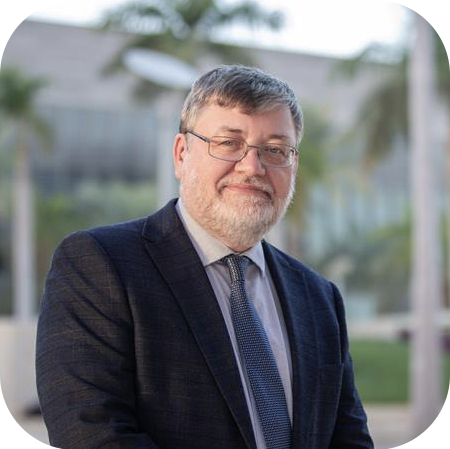PeroLED co-founder and KAUST Vice President for Research and Distinguished Professor of Materials Physics & Device Engineering, Donal Bradley, has been named a Fellow of the National Academy of Inventors (NAI).
NAI Fellows Program
The NAI Fellows Program highlights academic inventors who have demonstrated a spirit of innovation in creating or facilitating outstanding inventions that have made a tangible impact on quality of life, economic development and the welfare of society. Election as an NAI Fellow is the highest professional distinction accorded solely to academic inventors.
NAI Fellows hold more than 42,700 issued U.S. patents, which have generated over 13,000 licensed technologies and companies, and created more than 36 million jobs. In addition, over $2.2 trillion in revenue has been generated based on NAI Fellow discoveries. Donal and the rest of the Fellows will be inducted at the 2021 Fellows Induction Ceremony at the Tenth Annual Meeting of the National Academy of Inventors in June 2021, in Tampa, Florida.
View the complete list of NAI 2020 Class of Fellows here.
Professor Donal Bradley
Donal is a pioneer of soluble semiconductors. He is the co-inventor of conjugated polymer electroluminescence and co-founded Cambridge Display Technology Limited, now a wholly owned subsidiary of the Sumitomo Chemical Company. He also co-founded Molecular Vision Limited to develop novel polymer detection systems for microanalysis applications, latterly acquired by the Abingdon Health Group. Donal also served on the Board of Solar Press Limited and supported CSEM Brasil in establishing SUNEW, with both Solar Press and SUNEW established to commercialize roll-to-roll printed solar cells. Most recently, Donal is the co-founder of PeroLED Limited, an innovative technology company focused on expanding the colour gamut of displays.

Donal has received numerous awards in recognition of his contributions to science and engineering. He has been a Fellow of the Royal Society since 2004 and was appointed a Commander of the Order of the British Empire in 2010 for services to science. He holds honorary doctorates from the University of Sheffield and Hong Kong Baptist University and an honorary fellowship from Churchill College Cambridge. In addition, Donal is a Visiting Professor of Physics at the University of Oxford and is a Visiting Academician at the Oxford Suzhou Centre for Advanced Research.
